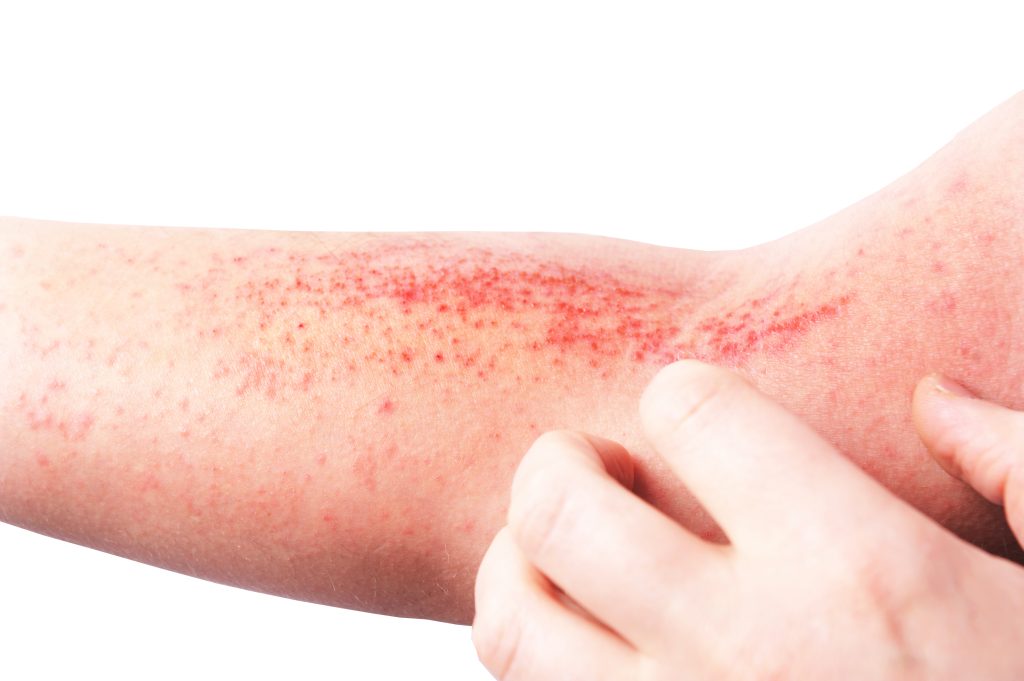Eight-week maintenance dosing with lebrikizumab (Ebglyss, Eli Lilly and Company) is a viable strategy for atopic dermatitis (AD) patients, according to results from a 32-week extension trial presented at the 2025 Fall Clinical Dermatology Conference in Las Vegas, NV.
The ADjoin study is a 100-week long-term extension study assessing lebrikizumab 250mg every two weeks (LEBQ2W) and every four weeks (LEBQ4W) in patients who completed qualifying parent studies. One hundred and three qualifying patients were re-randomized to open-label LEBQ8W or LEBQ4W for the 32-week extension.
The main takeaway? Lebrikizumab dosed every eight or four weeks provided long-lasting response in patients with moderate-to-severe AD.
Upon entering the extension, 64.7% and 73.1% of LEBQ8W and LEBQ4W patients, respectively, had achieved Eczema Area and Severity Index (EASI)-90 scores, and Patient Oriented Eczema Measure (POEM) mean (SD) scores were 8.7 (7.6) and 6.0 (5.4), respectively.
At Week 32 of the extension, percentages of patients who achieved Investigator’s Global Assessment (IGA) 0/1 were 62.0% (48.3, 75.8) and 73.0% (60.9, 85.1) in LEBQ8W and LEBQ4W, respectively. Moreover, 79.1% (67.6, 90.5) and 86.2% (76.8, 95.7) of patients achieved EASI-75, and 68.7% (55.8, 81.6) and 78.2% (66.8, 89.5) achieved EASI-90; POEM mean (SD) absolute scores were 9.2 (7.3) in LEBQ8W and 5.4 (5.2) in LEBQ4W.
Study author Peter A. Lio, MD, Clinical Assistant Professor of Dermatology & Pediatrics at Northwestern University Feinberg School of Medicine in Chicago, IL, chatted with The Dermatology Digest® about the new findings and their clinical implications.
TDD: Is dosing AD patients every eight weeks a viable strategy with lebrikizumab?
Peter A. Lio, MD: “Absolutely! Lebrikizumab has proven to be very effective for my patients even at the approved monthly dosing, and seeing the strong evidence for every eight-week dosing is incredibly exciting. For patients, especially those who travel frequently and for those who dislike injections, less frequent dosing is truly liberating. As with all medications, we strive to treat patients with as little medication as possible, and this aligns perfectly with that approach.”
TDD: Is lebrikizumab possibly a disease-modifying AD drug?
Dr. Lio: “This is a provocative question that I am very interested in learning more about. I can say that while we don’t know for sure if this drug truly modifies atopic dermatitis, I would argue that the very fact that we can use less frequent dosing to maintain improvement for many patients means, to me at least, that the vicious cycle of disease has indeed been modified. We don’t even have standardized terminology for this phenomenon, but I have a paper that is currently in press where I propose that this could be called ‘taper-responsive control.'”
TDD: What are the benefits here for AD patients and providers?
Dr. Lio: “There are so many benefits. First and foremost, less frequent injections mean decreased psychological burden, fewer painful shots, and lower costs and waste. For patients, that directly translates to more freedom to get back to living and focus less on their atopic dermatitis. For clinicians, it means minimizing the medication to maintain healthy skin and healthy patients, which is also a win. In my mind, this is one small step closer to a cure.”


